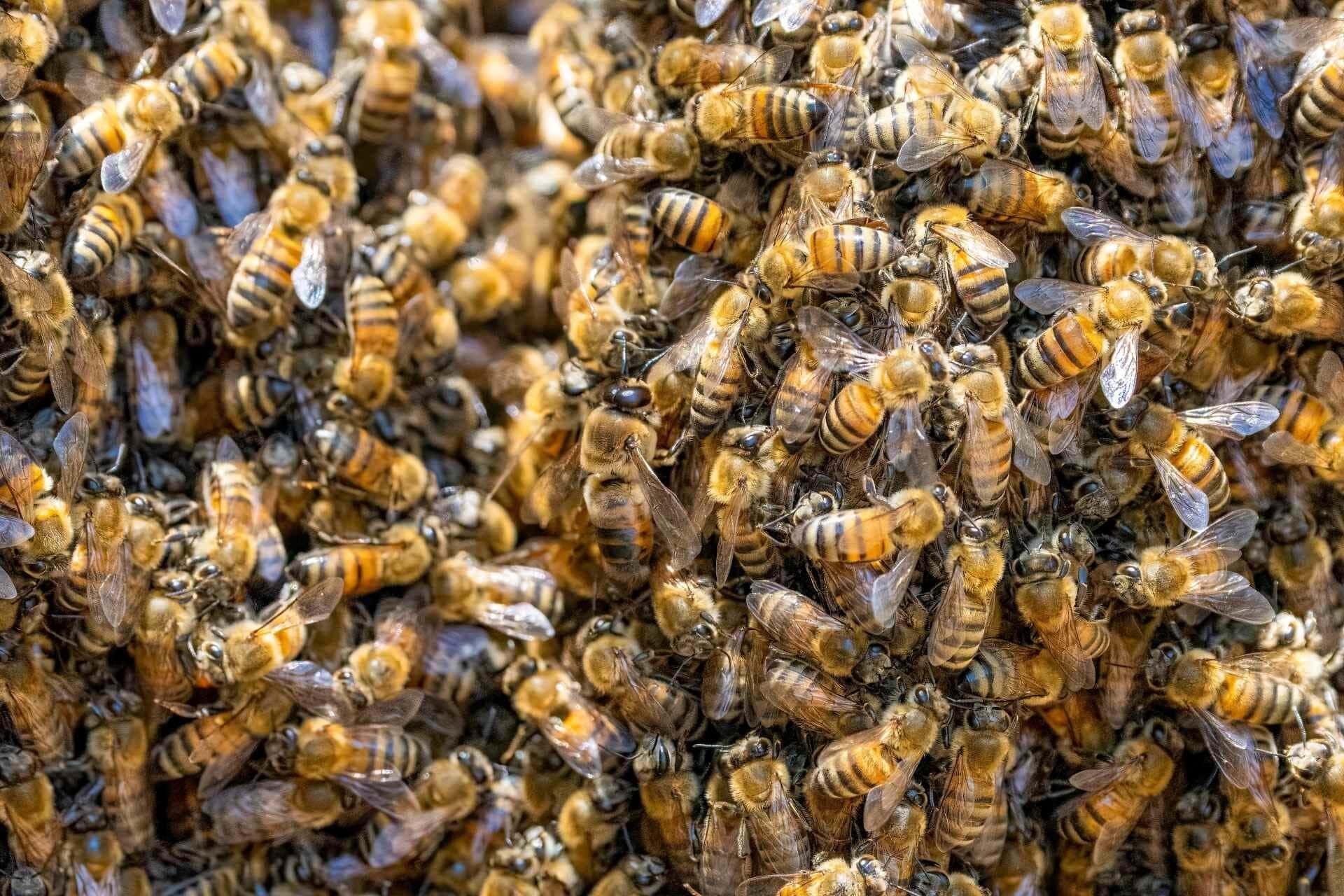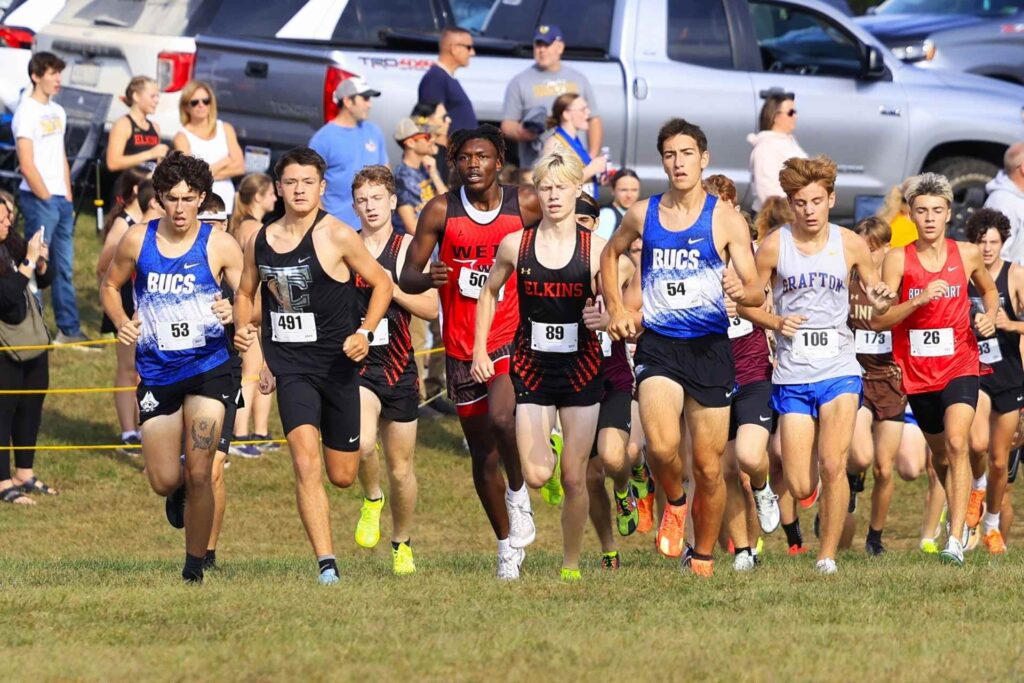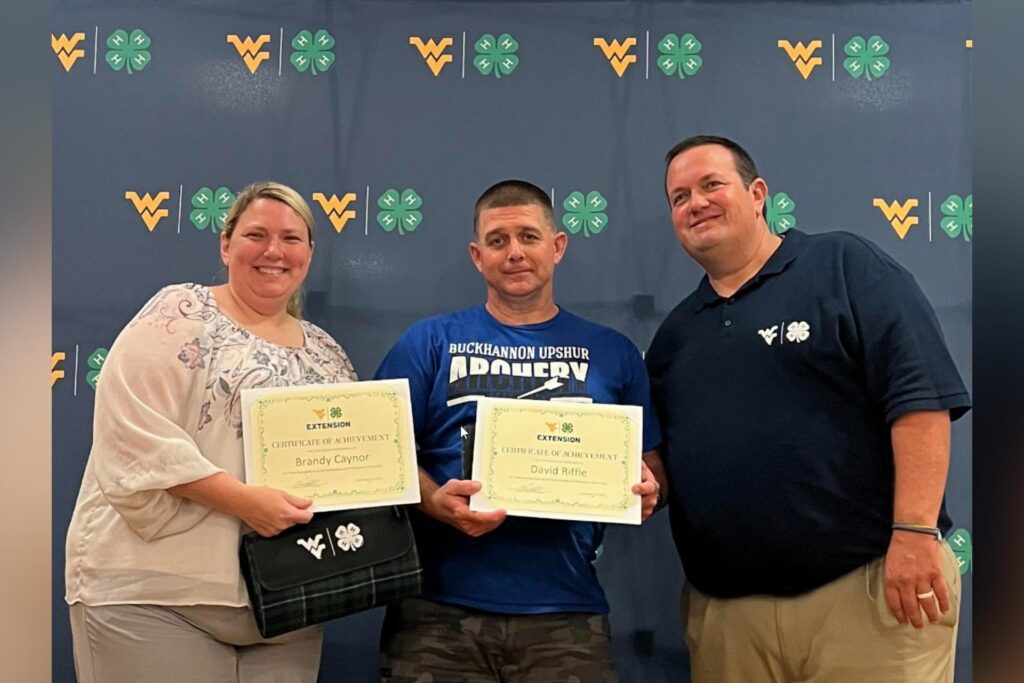You are sunbathing in your backyard with sunscreen, sunglasses and a tropical drink in hand. What could go wrong? BUZZ.
The West Virginia Department of Agriculture shares honeybee fun facts, hive maintenance techniques and residential hive removal processes as swarm season ramps up in the state.
“It is swarm season, and a honeybee swarm is nothing to panic about,” said Shanda King, state apiarist. “It is a natural process that honeybee colonies go through, and usually a beekeeper tries to curtail swarming, because what swarming, in its most basic definition, is how one colony becomes two colonies naturally, if left to their own devices. It’s how they divide themselves. In the spring, a colony will begin construction of a new queen based on things like the amount of resources coming into the hive, the amount of space that the queen has to lay eggs.”
As hive space decreases for the queen and an abundance of pollen and honey fills the hive, honeybees begin the process of swarming. This marks the time for scouts to search for a bigger place to call home.
“Hives start sending scouts out while they’re hanging there in that ball. The scouts will come back to report to the other bees through a dance, called a ‘waggle dance,’” King said. “The other bees watch this dance, and they go check out the place where the bees are talking about. Eventually, they are all mostly dancing the same dance while looking for a hollow space of some sort. Once they have mostly come to a consensus, the swarm will leave. This process can be anywhere from twenty minutes to several days. It just depends on the availability of acceptable space.”
Like many of us, when we see a bee of any kind, we find ourselves swatting at the air and dancing an unflattering jig until the buzz is no longer heard. Little do we know, this species has one thing on their mind at all times, nectar – not intentionally ruining our time outdoors by stinging us.
“As to stings, the most likely time that citizens come into contact with honeybee stings is on flowers in your yard, like if you’re out there and you’re barefoot and you step on one, or children step on one. The bees think they’re trapped, so they’re going to sting. Honeybees are way less likely to sting than wasps or yellow jackets. They’re not aggressive by nature,” King said. “Unless you walk over to a honeybee hive and you whack it on the side of the hive, you know they’re not going to come after you if you’re just in your yard.”
King told My Buckhannon another way that honey bees often come into contact with people is during what beekeepers like to call dearth. By definition, a dearth is a period of time in which little to no food is available in nature for bees. Times of dearth include drought in the local landscape.
“Soil moisture affects nectar availability in the flowers, and there may not be a lot to eat, and in those times, bees will try to look for something to eat, such as honey bird feeders or pop cans in a garbage can at the park or at the gas station. The bees are only looking for something to eat,” King said. “They don’t want non-nectar food. They’ll eat that to prevent starvation, but even in those instances, unless you put your hands on them, they’re probably not going to sting you.”
Another example of how humans can safely interact with bees would be near a water source.
“Honeybees are attracted to swimming pools because of the chlorine or hot tubs because they need minerals, just like every other animal. My recommendation would be to offer them something better, and that something better is probably going to look like some sort of shallow container, like a bird bath. Put rocks in it, and now that water is probably warmer than your pool water. Bees love warm water,” King said.
On the other hand, if you are a fan of honeybees and their positive impact on the environment, listen up! Residents are encouraged to plant nectar-rich flowers on their property. People can then interact with honeybees in a positive way instead of it always being a negative experience.
“Not everyone’s meant to be a beekeeper, but everyone can feed them. The simplest way to do it is to let flowers grow, bloom and let them eat, because we need them! They’re very important for pollination,” King said.
Although these small creatures are essential to the Mountain State’s natural beauty, the West Virginia Department of Agriculture encourages property owners to maintain caution with hive interactions in the presence of young children, the elderly and near pinned-up outside pets.
Have a swarm of unwanted honeybees on your property? The Department of Agriculture offers bee removal services across the state. Residents are encouraged to contact them at 304-558-2214 to learn about local beekeepers.
“We maintain a list of beekeepers who will be willing to respond to swarm calls, because if you call, they’ll put them in a hive, and that potentially prevents the hive from moving into unwanted locations on someone’s property,” King said.
Until the beekeeper arrives, property owners are encouraged to fill a spray bottle with water and a splash of almond extract. Spray those areas of unwanted bee-havior, such as the porch, pool entrance/exit, or other high-traffic areas. This routine will prevent honeybees from landing there because they are, interestingly, not fans of almonds!
Below are additional fun facts about honeybees that you may not already know:
- Honeybees do not have the ability to hover in flight.
- They are very fuzzy!
- Their abdomen is striped with a tan-brown color.
- Honeybees have hairs on their eyeballs.
- A honeybee can only sting one time.
- Beekeepers wouldn’t be able to immediately move the hive to somewhere else on their property, they have to be moved at least two miles away so that they reorient to that spot. In several weeks, the property owner can move the hive back to where you want them on your property.
- Honeybees do not fly up and back down. The bee will fly up and stay up.
“Honey production is not the most important thing that honeybees do. That is pollination, and our agriculture is absolutely dependent on it for food production. One out of every three bites that enter our mouth is because of the pollinated flowers, and they’re absolutely critical for our food production,” King said.














